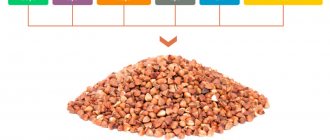Unloading while waiting for a child
You can often hear from pregnant women that the expectant mother should eat whatever she wants, without limiting herself. Excessive consumption of a variety of foods leads to gaining extra pounds. Doctors say that a balanced diet helps maintain the health and proper development of the baby and facilitates labor.
Excessive consumption and indiscriminateness in food worsens the well-being of the expectant mother. If the nutritional situation is out of control, fasting days on cottage cheese or other foods during pregnancy will help.
Unloading implies a reduction in the calorie content of dishes included in the daily diet and dietary restrictions. Rationally organized fasting days have a positive effect on the health of the baby and mother. It is important to consult your doctor before restricting your diet.
Unloading is carried out no more than one day. Severe restrictions on food consumption that last more than 2 days are called a diet. It can greatly harm the expectant mother and baby, leading to nutritional deficiencies.
Nutrition for pregnant women at different stages
The birth of a new life occurs in stages, which means that during different periods of pregnancy, different products are required for mother and baby.
First trimester
Most likely, in the first days of pregnancy, the young mother’s diet will remain virtually unchanged. However, even if taste preferences remain the same, you need to take care in advance about the correctness of your diet and supply the body with the necessary substances.
- Squirrels . In order to have enough proteins in the body, you need to include legumes (lentils, beans, chickpeas, peas), soy, eggs, meat, milk in your diet;
- Vegetable fats and unsaturated acids . Add unrefined flaxseed, olive, and sunflower oil to your daily menu;
- Carbohydrates (cereals);
- Folic acid. It is found in buckwheat, bananas, pumpkin, spinach and cereals;
- Magnesium . You can replenish magnesium from bran, barley, almonds and cabbage;
- Iron . There is a lot of it in apples, cocoa, buckwheat, chocolate, liver, fish, mushrooms;
- Calcium . This element can be obtained from broccoli, Chinese cabbage, and dairy products.
Fasting days in the early stages are not practiced. Exception: if the mother gains weight more than 600 grams per week. Then the doctor may prescribe fasting days, but this is rather an exception.
It is recommended to stick to fractional meals.
Second trimester
During the second trimester, the baby grows rapidly, various body systems continue to develop and organs are formed. This explains the expectant mother’s increased appetite and unpredictable eating habits. You need to try to eat a varied diet to replenish all the necessary vitamins and minerals, but at the same time make sure that the food is healthy. No baked goods, unhealthy sweets, fried or spicy foods.
Fasting days in the 2nd trimester are carried out as prescribed and under the strict supervision of a doctor. Meals are still small and frequent.
Who are not recommended for fasting days?
Independent experiments by pregnant women with the introduction of fasting days and dietary restrictions are prohibited. Such activities have a number of contraindications:
- presence of chronic diseases – diabetes mellitus and others;
- weight loss in the expectant mother;
- certain pathologies of the gastrointestinal tract and cardiovascular system.
Women with:
- food allergies;
- bronchial asthma;
- diseases of the endocrine system.
Reviews
Ekaterina Vilnus, 32 years old, Samara
Before, before pregnancy, I often went on a buckwheat diet. And I really liked it, because the weight came off quite quickly, and I didn’t starve. When I became pregnant, I didn’t gain weight at first, and then I suddenly gained 3.5 kg in a month. The doctor scolded me greatly and sent me to lose weight. And I decided to resort to my proven method. Only this time, keep a less strict diet, only buckwheat, but also add boiled chicken breast and kefir to it. I ate this way twice, two days a week. As a result, I lost 800 g in two weeks, which made my gynecologist very happy. But later I began to eat more healthily, arranging for myself such fasting only once a week.
Alexandra Viktorovna, 23 years old, Tobolsk
When I became pregnant, I decided that I would eat right, because I was afraid that I would gain a lot in 9 months. But being already in the sixth month, I suddenly gained 2 kg. I was very upset and decided that I needed to lose at least 1 kg. I read about buckwheat fasting days. The next day I cooked buckwheat and began to eat it. At first I really liked everything. But by evening she began to bother me. The next day I continued to eat it, although I was already quite disgusted by it. By the evening of the next day I started feeling dizzy. After three days of this diet, I began to hate buckwheat. But this is nothing compared to the fact that I eventually lost consciousness and my husband sent me to the hospital. It turned out that my blood pressure had dropped significantly and my hemoglobin had decreased, although it had previously been normal. The doctor said that such diets are prohibited during pregnancy and you need to eat well. After all these suggestions, I simply began to adhere to proper fractional nutrition and my weight returned to normal on its own.
Tamara Vyacheslavovna Tils, gynecologist, Moscow
Throughout pregnancy, we, gynecologists, carefully monitor a woman’s weight gain. The health of not only the pregnant woman herself, but also the unborn child, depends on this factor, since they may indicate such a serious condition as gestosis. It manifests itself in sudden weight gain and swelling. In this regard, it is very good to switch to a special diet that includes buckwheat. In addition to it, it includes boiled chicken breast, cottage cheese, and kefir. Additionally, you can add 1-2 apples per day. Salt must be eliminated and the volume of water consumed must be reduced to 1 liter per day. This will be a therapeutic diet that will help normalize the condition of a pregnant woman. But mono-diets are strictly prohibited, since in this case there will be a lack of nutrients.
Anastasia Sergeevna Volkova, nutritionist, Moscow
As a nutritionist, I am against mono-diets, as they lead to disruptions in the gastrointestinal tract, a drop in blood pressure and many other abnormalities. In addition, it should not be used during heavy physical exertion, as many experience a loss of strength. Also, after mono-diets, the results obtained are not long-lasting: after a maximum of 4–5 weeks, the lost weight will return. Moreover, during pregnancy you should not resort to such strict diets; it is best to eat properly and in portions. We must not forget that during this period nutrition goes not only to the woman herself, but also to the fetus. And with such restrictions, the unborn child will not have enough nutrients, and he will begin to “pull” them out of the mother, which will lead to a deterioration in her health.
With a properly balanced diet and no overeating, a woman will not experience much weight gain. But if, nevertheless, the kilograms come on too quickly or there is swelling, then it is necessary to use a health-improving diet. At the same time, buckwheat is good. But it should not consist only of cereals, it must be supplemented.
Read: Brown discharge during menstruation
This way you will have a nutritious menu that will normalize your health in this position. Also, do not forget about the amount of water you drink and salt you consume. Their quantity also needs to be strictly controlled.
About the benefits of fasting days in the following video:
24 Jan 2021 Valeria 339
Share this post
We recommend reading along with this article
- Choosing a complex of vitamins by age for children
- Cabbage during pregnancy: benefits and harms of different types
- Balanced diet and proper nutrition during breastfeeding
- How to lose 5 or more kg per month after pregnancy and childbirth
- How to prepare the body for conception - examination,...
- Similak Premium: composition, feeding schedule, reviews
- What can you eat to increase hemoglobin in pregnant women and children?
- Every person should have a properly formulated diet...
- Maltofer tablets: instructions for use
Discussion: there is 1 comment
- Mokina Sveta:
01/25/2018 at 00:10I used buckwheat fasting day during pregnancy and such a micro-diet does no harm. I cooked buckwheat in water and without salt. Of course it’s not tasty, but it really helps to “unload.”
Answer
Indications for unloading the body
The basic principle of nutrition that an expectant mother should adhere to is moderation. While expecting a baby, pregnant women should not limit their diet unnecessarily. Doctors can recommend fasting days to pregnant women when:
- gestosis;
- rapid weight gain;
- disorders of the gastrointestinal tract, constipation;
- exacerbation of chronic diseases, especially with pathologies of the kidneys and liver;
- swelling;
- shortness of breath;
- diseases of the cardiovascular system.
Positive and negative sides
The fasting day must be carried out correctly. It is then that it will help get rid of extra pounds and at the same time provide the pregnant woman and her intrauterine child with the necessary nutrients.
In addition, unloading will help:
- improve the functioning of metabolism
- deal with excess fluid
- normalize blood pressure
- get rid of swelling of the face and limbs
- strengthen the immune system
In early pregnancy, provided the pregnancy progresses normally, a girl can gain about 3 kg in weight, but at the same time remain in optimal shape for her. Doctors note that in the first half of gestation, the expectant mother gains 40% of her weight, and the remaining 60% of weight gain occurs upon reaching the 20th week of pregnancy. It is important to note that weight gain is not the result of excessive and high-calorie malnutrition, but the girl’s lifestyle, the functioning of the endocrine and vascular systems.
A fasting day during pregnancy is prescribed when the following symptoms occur:
- swelling of the limbs
- shortness of breath during moderate walking
- sudden increase or decrease in blood pressure
- the appearance of disturbances in the functional activity of the cardiovascular systems
Such symptoms signal a deterioration in the health of the expectant mother, thereby increasing the possibility of pathological abnormalities in the development and growth of the intrauterine child.
The benefits and harms of a fasting day for a pregnant woman
Benefits that the expectant mother receives:
- the body is cleansed of toxins and waste;
- excess fluid is removed;
- additional microelements and vitamins come from foods;
- weight loss;
- blood pressure is normalized;
- swelling goes away;
- the walls of blood vessels and the heart muscle are strengthened;
- kidney and liver function is restored;
- the digestive system is unloaded and rests;
- metabolic processes improve;
- nails and hair become stronger, skin becomes smoother and healthier.
Fasting days do not bring harm if you follow the recommendations of a specialist and listen to your own body.
Apathy and fatigue
Now your body is working hard for the benefit of the child growing inside it. This may make you feel tired, overwhelmed, and apathetic more often than usual. Do not deny yourself the pleasure of resting or taking a nap during the day. Monitor the iron content in your menu - its deficiency can lead to anemia, which only aggravates the listed syndromes and leads to chronic fatigue.
Increased fatigue coupled with a hormonal surge can also affect your emotional stability. Mood changes are especially typical during the first half of pregnancy. The most useful recommendations are sufficient exposure to fresh air, adequate sleep and nutrition.
Types of fasting days
Nutritionists offer a variety of ways to unload the body of a pregnant woman. It is necessary to choose the appropriate option individually with a doctor, who will take into account the health status of the expectant mother and the purpose of the event.
Each type of unloading has its own healing properties. If you have kidney disease, liver disease, hypertension or edema, apple or watermelon days are recommended. If a woman has obesity or atherosclerosis, you should give preference to low-fat kefir. Fasting days on buckwheat during pregnancy are recommended for women who suffer from constipation.
Expectant mothers with diseases of the digestive system are contraindicated on days with dietary restrictions, where they can only consume fermented milk products or meat, which brings minimal benefit to the body.
The best options for fasting days for women who are in an interesting position are buckwheat, apple and kefir. A similar diet during pregnancy maintains energy throughout the day and helps satisfy hunger. Apples can only be consumed by those who do not have gastritis.
Many useful step-by-step recipes with buckwheat can be found here!
For swelling
Minor swelling while waiting for a baby is a natural phenomenon. During labor, most of the fluid accumulated in the body is eliminated. The remaining volume will be released in the first week after the baby is born.
To reduce swelling, you should lead an active lifestyle and adhere to the principles of proper nutrition:
- Reduce the amount of salt you consume as much as possible.
- Establish a drinking regime.
- Avoid eating smoked and fatty foods.
- Give preference to boiling and steaming food.
- Include vegetables, herbs and fruits in your daily menu.
- Have snacks between main meals.
- In the absence of contraindications, unload the body.
"Hungry" days
This weight loss option is quite effective. “Hungry” days allow the digestive system to rest, and the pregnant woman’s body has time to cleanse itself.
| Type of fasting day | Approximate daily diet |
| Vegetable | On this day it is better to choose zucchini, zucchini, cucumber, cabbage, and bell pepper. Vegetables can be consumed raw or boiled. No more than 1.5 kg is allowed per day. |
| Kefir | You are allowed to drink no more than 1.5 liters of low-fat kefir per day. You can't eat. |
| Watermelon | You can't eat anything except watermelon all day. Don't forget about your drinking regime. The daily limit is water of at least 1.5 liters and no more than 1.5 kg of watermelon. |
| Apple | The preferred option for unloading the body in the summer. Apples are eaten baked or fresh. When preparing, you should avoid using sugar, but you can pour honey over the fruit and sprinkle with cinnamon. The norm is up to 1.5 kg. |
| On juice | Consume no more than 1 liter of freshly squeezed juice. The drink is prepared immediately before consumption. Juice can be made from berries, fruits or vegetables. |
"Fed" days
This is an excellent option for expectant mothers who cannot stand the feeling of hunger. Such fasting days are perfectly combined with the dietary nutrition of nursing women.
| Type of fasting day | Approximate daily diet |
| Curd | It is permissible to consume 600-800 grams of berries and 400 grams of low-fat cottage cheese per day. You need to give up sugar. When choosing berries, give preference to seasonal ones. A little milk or low-fat kefir can be added to the diet if cottage cheese without adding sour cream seems dry. |
| Buckwheat | Buckwheat is not cooked, because in this case it loses its beneficial properties. A glass of buckwheat is filled with 1.5 glasses of low-fat kefir and placed in a dark and cold place for 12 hours (the refrigerator cannot be used). Salting the dish is prohibited. |
| Fruit | You can choose any fruit, but consume no more than 1 kilogram per day. They are used to make salads or eat in their pure form. |
| Potato | You can consume no more than 2 kilograms of boiled or baked potatoes per day. It is not prohibited to add up to 2 glasses of low-fat kefir to the diet. |
| Rice | Brown rice in the amount of 150 grams is boiled without salt until tender. You can add carrots, sweet bell peppers or an apple to the dish. |
Here is an interesting recipe for cottage cheese casserole with buckwheat flour.
Basic rules and recommendations
A doctor helps develop a program for introducing fasting days. To “squeeze” the maximum benefit out of them, you should adhere to the following recommendations:
- Preliminary consultation with a doctor and medical examination.
- The beginning of the introduction of fasting days (in the absence of contraindications) is the end of the 7th month of pregnancy.
- Frequency – 1 day per week.
- The volume of liquid is more than 2.5 liters per day. The water composition can be changed depending on the condition of the mother's body. For example, if there is severe swelling or high blood pressure, then the dose of fluid is reduced to at least 1.5-2 liters.
- Meals should be frequent - up to 5-6 meals every 2-3 hours. It is necessary to ensure that the intermediate intervals are not accompanied by a pronounced feeling of hunger or anxiety.
- If you cannot control your hunger, you should drink a glass of low-fat yogurt.
- Products must be free of salt and sugar.
- If there are any complications of pregnancy (during the acute period), fasting days are contraindicated.
- The fasting day should be devoid of physical and mental overload.
- The average calorie content of food should be between 1000 and 1500 calories.
- The start time of the fasting day is 18-00 of the previous day.
- The bulk of food should be eaten in the morning and afternoon periods.
- The only spice you can use is cinnamon.
- The end of the fasting day is always gradual. The next morning you need to eat often, but in small portions, keeping the maximum variety in your diet.
Features of the event
You can achieve the maximum benefit of fasting days for the body of a pregnant woman and baby by adhering to certain rules:
- Start the practice of restricting nutrition from the 28th week of the baby's waiting period.
- Obtain the doctor's permission and his recommendations.
- Unload the body no more than once every 7-10 days.
- Regularly arrange days with dietary restrictions during rapid weight gain.
- On a fasting day, drink at least 2 liters of clean water.
- Have meals every 3.5-4 hours.
- Drink a glass of natural yogurt or low-fat kefir if you cannot bear hunger.
- Avoid consuming sugar and salt.
- Practice various options for fasting days - buckwheat, cottage cheese, apple.
- Avoid carrying out such activities if you have toxicosis.
- Take into account and adhere to permissible limits. When unloading the body with fruits and vegetables, the weight of food consumed per day should not exceed 2 kilograms, and with meat - up to 700 grams.
- You cannot combine fasting days with intestinal cleansing.
- Avoid physical activity and excessive fatigue.
- Gradually exit the fasting day.
Certain tricks will help you to have a positive attitude toward unloading your body.
- Finding something fun to do for the day.
- Using small dishes. Deceiving the brain will help you overcome the feeling of hunger.
- Companion support. Spending a fasting day together can overcome temptation.
Content
- Fasting days for pregnant women
- Indications for fasting days
- Contraindications
- The harm and benefits of fasting days
- Rules for holding a fasting day
- How to make a fasting day easier?
- The right way out of a fasting day
- Types of fasting days
- "Fed" days
- "Hungry" days
- Fasting day for edema
- Protein diet for pregnant women
- Nutrition for pregnant women at different stages
- First trimester
- Second trimester
- Third trimester
[ads-pc-2][ads-mob-2]
The right way out of a fasting day
After carrying out measures to limit food and reduce daily caloric intake, you should not overeat the next day. Otherwise, the body will experience severe stress, and unloading will be ineffective. The next day, you should give preference to light meals and a balanced diet:
- breakfast - boiled chicken egg, porridge or low-fat natural yogurt;
- lunch - chicken or rabbit with a side dish of vegetables, low-fat fish or soup with vegetable broth;
- dinner - boiled vegetables with meat or cottage cheese.
Proper fasting days help a pregnant woman not to gain extra pounds while expecting a baby, maintain her own health and improve her well-being. The video talks about effective unloading for expectant mothers without harm to the babies:
Nutrition rules by trimester
It is important for women to eat right during pregnancy. During intrauterine development, the fetus must receive a sufficient amount of nutrients necessary for the growth of all organs.
First
At the beginning of the first trimester, most women do not change their taste preferences, because...
The expectant mother still has enough nutrients in her body that are necessary for the normal development of the fetus. However, to avoid a deficiency of vitamins and minerals, you need to include different food groups in your diet. The menu must include protein foods. This includes:
- soy;
- lentils;
- peas;
- chickpeas;
- eggs;
- dairy products;
- meat;
- fish.
Be sure to consume vegetable fats. Their sources are unrefined olive, flaxseed, sunflower and other oils. In addition, you should include cereals that contain many complex carbohydrates in your diet. To compensate for a possible deficiency of vitamins and minerals, you need to eat vegetables, fruits, berries and nuts.
Second
In the 2nd trimester, most women experience a change in taste preferences and an improvement in appetite. This is due to the acceleration of the child’s growth and the continued development of his systems. A woman needs to include different foods in her diet to prevent protein, vitamin and mineral deficiencies. This excludes sweets, baked goods, spicy and fried foods.
If there is too much weight gain, it is recommended to perform unloading 2 times a month.
Third
In the third trimester, the formation of the fetus is completed, and the woman’s body is also preparing for the upcoming birth. Appetite does not decrease, cravings for junk food appear. However, its use should be avoided. You need to eat 4 times a day. If a woman is overweight, she should spend cleansing days on cottage cheese, vegetable salads or baked apples 3-4 times a month.










